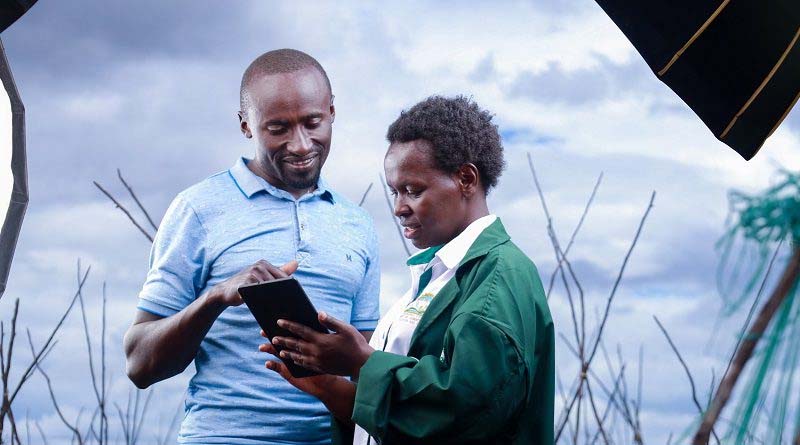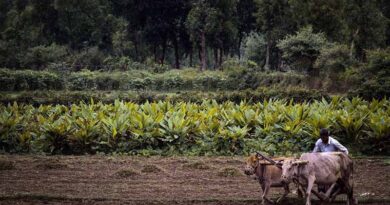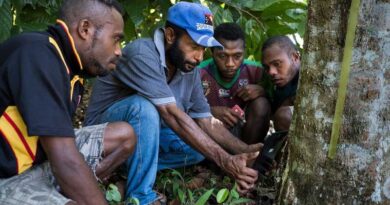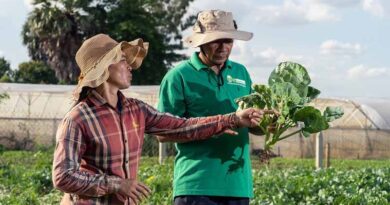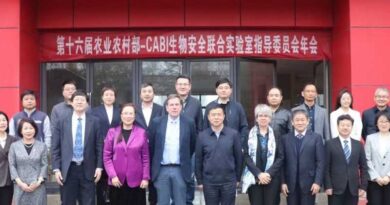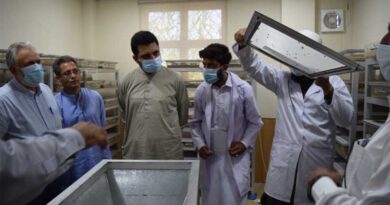CABI shares expertise in FAIR data at SciDataCon conference as part of International Data Week
25 October 2023, Austria: CABI has shared its expertise in FAIR data – as they apply to data governance, development projects and investments – at the SciDataCon conference in Salzburg, Austria, held as part of International Data Week.
Ada Isaac, CABI’s Research and Development Manager, attended the event – which is the international conference for scrutiny and discussion of the frontier issues of data in research – and gave a presentation entitled ‘Taking the people first approach for FAIR implementation.’
SciDataCon is organised by two data bodies of the International Science Council (ISC) – CODATA (the ISC’s Committee on Data) and the WDS (the ISC’s World Data System International Programme Office).
CABI’s work in digital development helps bring practical agricultural knowledge to smallholder farmers to help them grow more healthy, nutritious, and profitable crops. It does this by adopting FAIR principles – that is data should be Findable, Accessible, Interoperable and Reusable.
Digital development is just one area of expertise for CABI which also includes crop health, development communication and extension, invasive species, publishing and value chains and trade.
As part of goal five of CABI’s Medium-Term Strategy 2023-2025, its work to help farmers grow more and lose less to crop pests and diseases uses insights from data and modelling, for example, to develop context-specific recommendations, anticipate future threats, and identify trends across large data sets and disparate sources.
Another aspect of the goal is to support grant makers, grantees, and national agricultural systems to improve their data governance and to make data generated in development projects FAIR. This will help reduce repeated and wasted effort and maximize the value and impact of projects.
Ms Isaac told the conference that CABI has conceptualised a FAIR Process Framework which considers two parts to operationalising FAIR.
They are the ‘upstream’ which considers the FAIR maturity of the investments’ systems and accounts for the preparation to implement FAIR, and the ‘downstream’ accounts for the technical execution of FAIR – considering the technical components of investments.
She further outlined six steps to delivering FAIR practices in investments. These include defining data intervention types, understanding the enabling environment, identifying data assets, co-developing FAIR aligning principles, developing a FAIR data strategy and developing a FAIR technical implementation plan.
Ms Isaac said, “The SciDataCon was an excellent opportunity to showcase CABI’s work in the field of FAIR data as part of the event’s seven overarching themes that included advancing data through cutting-edge technology and championing data beyond FAIR.
“CABI’s expertise in the application of FAIR principles also aligns with our efforts to create, curate and share high-quality evidence relevant to policy and practice, and for different stakeholders, from farmers and their advisors to policymakers, researchers, students, industry actors and investors.”
Ms Isaac added that, to implement a people-first approach to FAIR implementation, it is necessary to “engage with stakeholders and involve them in the implementation process.” This can involve, she said, a range of activities, including stakeholder consultations, focus groups, and user testing.
“By involving stakeholders in the implementation process, it is possible to identify and address the specific challenges and opportunities related to their work.
“It is also important to communicate the benefits of FAIR data principles in a clear and compelling way. This can involve developing training materials, organizing workshops, and providing support for researchers and data managers,” Ms Isaac said.
In April this year, Ms Isaac shared CABI’s expertise in digital development at the World Literacy Summit which was held at the University of Oxford.
Here Ms Isaac spoke about insights on funding and grant making with an overview of the concept of knowledge requirements before outlining lessons learn from CABI’s Enabling Data Access projects.
These include work in Ethiopia and India, funded by the Bill & Melinda Gates Foundation (BMGF) and in partnership with The Open Data Institute (ODI), to facilitate better data-driven decisions within the investments of BMGF Decision Agriculture and the national systems in which the investments operate.
And later on in May, Ms Isaac joined Chipo Msengezi, CABI’s Project Manager – Digital Development, at the Master Data Management & Data Governance Conference Europe 2023 in London, UK, where they gave a presentation entitled ‘Leveraging FAIR for Better Data Governance.’
Here they further demonstrated the benefits of good data management in agriculture such as how the development of precise agricultural apps and tools requires accurate information and data.
In this respect they later highlighted how the Data Sharing Toolkit, for example, could contribute to unlocking better data management practices and in turn strengthen agricultural investments resulting into greater food security in Sub-Saharan Africa and South Asia through better access to information on soil health, agronomy and fertilizers.
Also Read: Innovative Label Design: Revolutionizing Agrochemical Packaging in India
(For Latest Agriculture News & Updates, follow Krishak Jagat on Google News)

